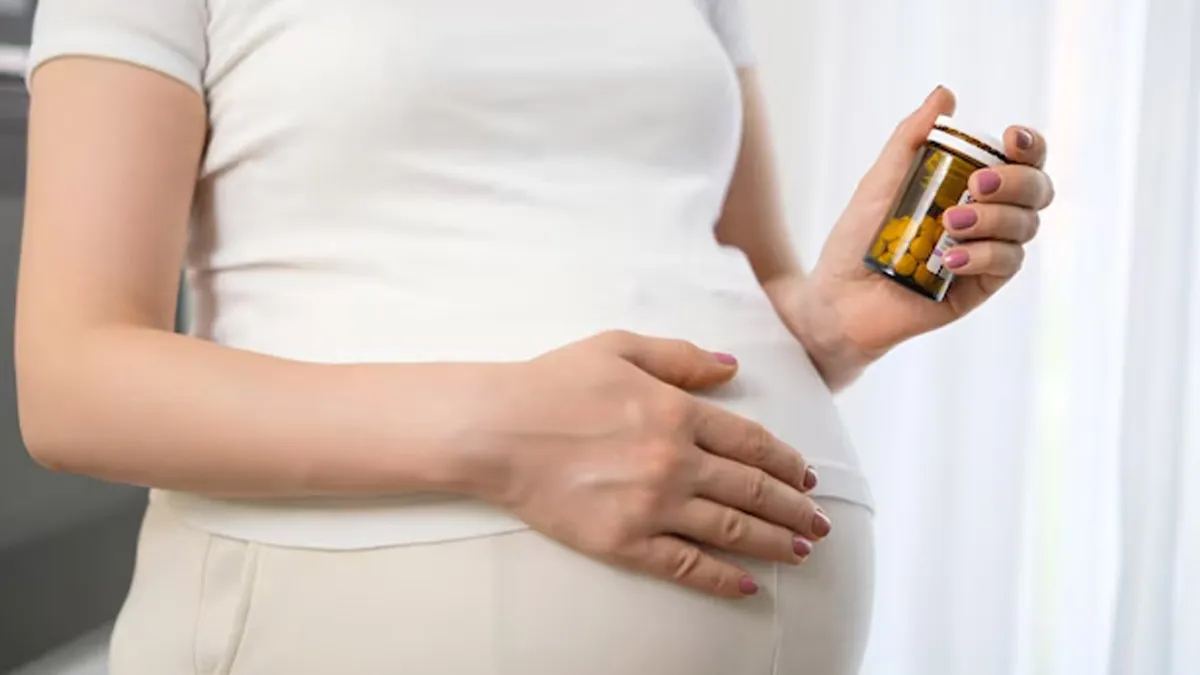
A recent study published in The American Journal of Clinical Nutrition has raised serious concerns about prenatal vitamins, revealing high levels of lead and arsenic in some products. These findings have left many pregnant women questioning the safety of these supplements. We spoke to Dr Prachi Sarin Sethi, Senior Consultant at Motherhood Hospitals, Gurgaon, who shares expert insights on the issue, alternatives, and ways to ensure safety.
Prenatal vitamins are often prescribed to ensure pregnant women receive essential nutrients like folic acid, iron, calcium, and omega-3 fatty acids. However, a recent study highlights that some prenatal vitamins lack the necessary nutrients while containing unsafe levels of toxic metals such as lead and arsenic.
Dr Sethi advises caution, stating, “It’s the need of the hour to consult an expert and make sure that the ingredients in these supplements are safe and meet nutritional standards.” She emphasises that pregnant women should avoid blindly trusting over-the-counter supplements and consult their doctors for recommendations tailored to their needs.

She also stresses the importance of understanding what the body truly needs during pregnancy: “During pregnancy, you need folic acid, iron, calcium, vitamin D, choline, omega-3 fatty acids, B vitamins, and vitamin C.”
Don't Miss: How Does Air Pollution Influence Your Menstrual Cycle? Doctor Guides Through, Shares Preventive Tips
For those hesitant about taking supplements, there are dietary alternatives to help meet nutritional requirements naturally. Dr Sethi recommends incorporating nutrient-rich foods into daily meals to compensate for deficiencies. Here are some alternatives:

Eating a balanced diet rich in these nutrients can significantly reduce dependency on supplements. However, Dr Sethi advises that dietary options should complement, not entirely replace, prescribed supplements when recommended by a doctor.
If a pregnant woman has already consumed prenatal vitamins with potentially unsafe ingredients, it’s important not to panic. Regular health monitoring and follow-ups with a healthcare provider are essential.
Don't Miss: World AIDS Day 2024: What Happens When An HIV+ Woman Becomes Pregnant? Gynaecologist Weighs In
Dr Sethi says, “If pregnant women have already taken vitamin supplements, it is imperative to monitor their health regularly through check-ups and follow-ups. Avoid going overboard on these supplements.”

She highlights the importance of sticking to prescribed dosages and being aware of symptoms such as bloating, headaches, heartburn, and abdominal distress. “Women shouldn’t take any supplements just because their friend or a relative is recommending it,” she adds.
While prenatal vitamins play a crucial role in ensuring a healthy pregnancy, the findings of high levels of lead and arsenic highlight the need for caution. By consulting healthcare professionals, monitoring health, and exploring dietary alternatives, pregnant women can make informed choices for their and their baby’s well-being. As Dr Sethi aptly puts it, “It is better to be safe than sorry.”
Image Credits: Freepik
If you liked this story, then please share it. To read more such stories, stay connected to HerZindagi.
Also watch this video
Herzindagi video
Our aim is to provide accurate, safe and expert verified information through our articles and social media handles. The remedies, advice and tips mentioned here are for general information only. Please consult your expert before trying any kind of health, beauty, life hacks or astrology related tips. For any feedback or complaint, contact us at [email protected].